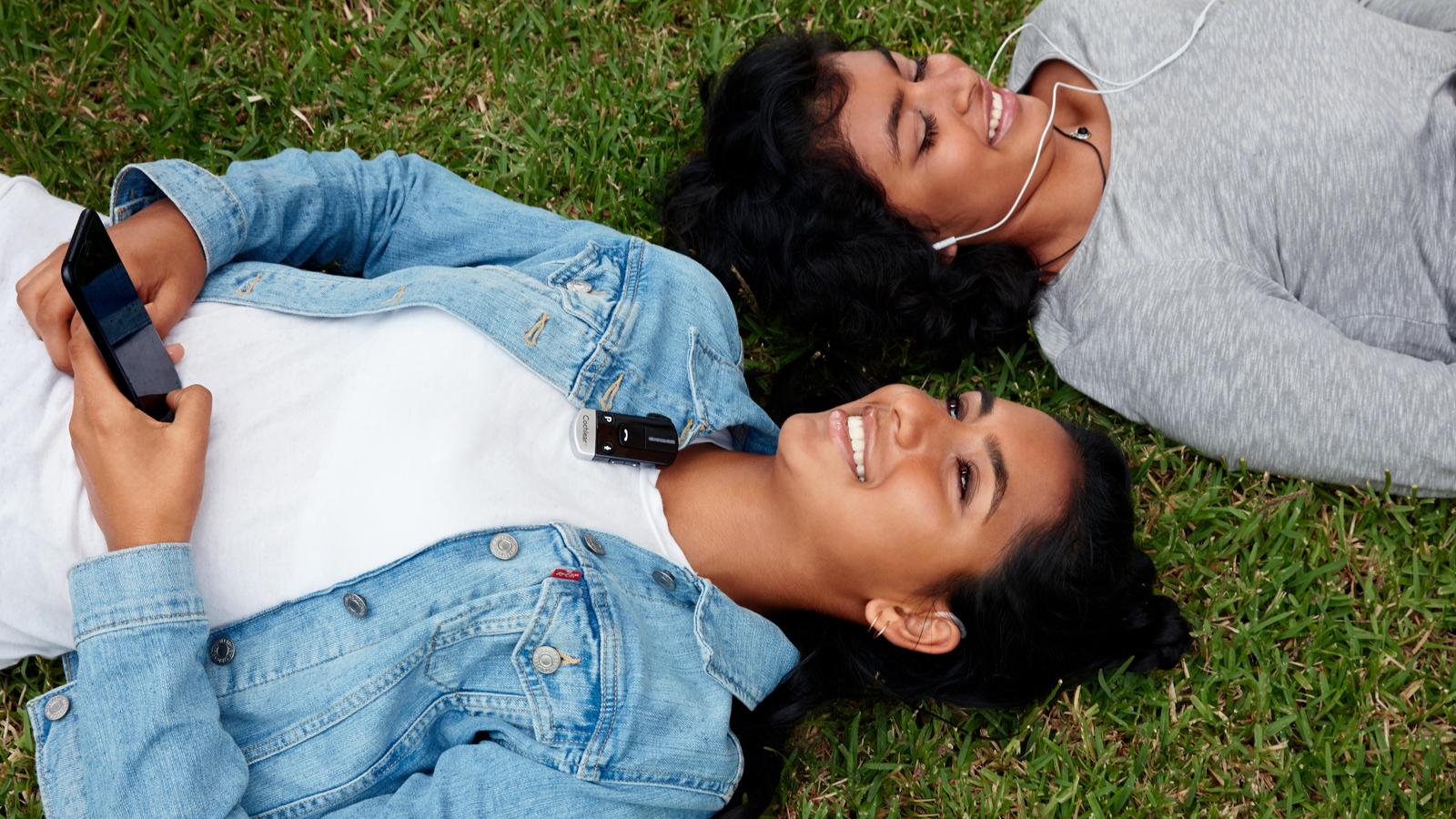Nucleus® implant reliability
With a cochlear implant, you want to choose the best hearing solution for today and for the future. That’s why reliability is so important.

What you'll find on this page
- Why implant reliability is important. Dan
- Why Cochlear™ Nucleus® Implants are the most reliable today for both adults and children.
- The story of Cochlear's first commercial child recipient, Holly Taylor, who's relied on her implant for more than 30 years.
Reliability you can count on
Choosing a cochlear implant is an important decision. Be it for yourself or a loved one, you want to trust that you are choosing the right hearing solution for today and for the future.
Along with hearing performance, the reliability of the implant you choose is a measure of quality and can provide peace of mind for the years to come. That's why it matters that Cochlear™ Nucleus® Implants are the most reliable in the industry.1-3
Most reliable today^
No other implant manufacturer can match the reliability of our latest generation implants.1-3
Latest generation implant reliability1-3
Reliability data sourced from other manufacturers' reports:
Most reliable over time
Cochlear Nucleus implants are the most reliable on the market, today^ and over time.1-3
Transparency is important to us, so we meet and report against interdependent global standards for implant reliability, publishing data of every implant generation, past and present.4-8
Implant reliability over time1-3
Most reliable for children
When choosing a hearing implant for your child, we understand that you want the very best. Cochlear has market-leading implant reliability rates for children, with 99.71% CSP* within six years for our Nucleus Profile Series Implant and 100% CSP within one year for our Nucleus Profile Plus Series Implant.1
Latest generation implant reliability in children1-3
Note: MED-EL does not report data separately for adults and children which is required by the European and International consensus statements on cochlear implant reliability reporting.
Most chosen
With more than 410,000 registered Cochlear Nucleus implants worldwide,1 Cochlear leads the way as the most chosen provider of implantable hearing solutions.
Number of registered implants1, 3
MED-EL does not report number of registered cochlear implants.
For data based on the ANSI/AAMI CI86 Standard for cochlear implant systems click here. For information on the calculation of implant reliability click here.
Why cochlear implant reliability matters
Cochlear's first commercial child recipient, Holly Taylor, has relied on her Cochlear implant for more than 30 years. Discover why Holly says, "I choose quality. I choose Cochlear."
Holly is an immediate family member of an employee of Cochlear Limited.
Disclaimer
Please seek advice from your health professional about treatments for hearing loss. Outcomes may vary, and your health professional will advise you about the factors which could affect your outcome. Always follow the directions for use. Not all products are available in all countries. Please contact your local Cochlear representative for product information.
For a full list of Cochlear’s trademarks, please visit our Terms of Use page.
Views expressed are those of the individual. Consult your health professional to determine if you are a candidate for Cochlear technology.
In Australia, Cochlear™ Nucleus® implant systems are intended for the treatment of moderately severe to profound hearing loss.
In Australia, Baha® bone conduction implant systems are intended for the treatment of moderate to profound hearing loss.
In Australia, the Cochlear™ Osia® System is indicated for patients with conductive, mixed hearing loss and single-sided sensorineural deafness (SSD) aged 10 years and above with up to 55 decibels sensorineural hearing loss. Patients should have sufficient bone quality and quantity to support successful implant placement. Surgery is required to use this product. Any surgical procedure carries risk.
For Cochlear™ Nucleus®, Osia® and Baha® systems: This product is not available for purchase by the general public. For information on funding and reimbursement please contact your health care professional.
Any testimonial featured on this website is intended for an Australian audience only.
^ Latest generation of cochlear implants commercially available as at 31 December 2019.
* CSP = Cumulative Survival Percentage. CSP includes both device and accident related issues.
References
- Cochlear Limited. D1712187. Cochlear Nucleus Reliability Report, Volume 18 December 2019. 2020, Mar.
- Hearing Implant Reliability Reporting | MED-EL [Internet]. Medel.com. 2020 [cited 25 February 2020]. Available from: http://www.medel.com/hearing-solutions/cochlear-implants/reliability
- 2019 Global Implant Reliability Report. 027-N025-02 RevC. Advanced Bionics AG and affiliates.; 2019.
- International Standard ISO 5841-2. Implants for Surgery — Cardiac Pacemakers — Part 2: Reporting of Clinical Performance of Populations of Pulse Generators or Leads. Geneva (Switzerland): International Organization for Standardization. 2000.
- International Standard ISO 5841-2. Implants for Surgery — Cardiac Pacemakers — Part 2: Reporting of Clinical Performance of Populations of Pulse Generators or Leads. Geneva (Switzerland): International Organization for Standardization. 2014.
- European Consensus Statement on Cochlear Implant Failures and Explantations. Otol Neurotol. 2005 Nov;26(6):1097-9.
- Battmer RD, Backous DD, Balkany TJ, Briggs RJ, Gantz BJ, van Hasselt A, et al. International Classification of Reliability for Implanted Cochlear Implant Receiver Stimulators. Otol Neurotol. 2010 Oct;31(8):1190-3.
- ANSI/AAMI CI86. Cochlear implant systems: Requirements for safety, functional verification,. (2017). Arlington, VA: American National Standards Institute.









